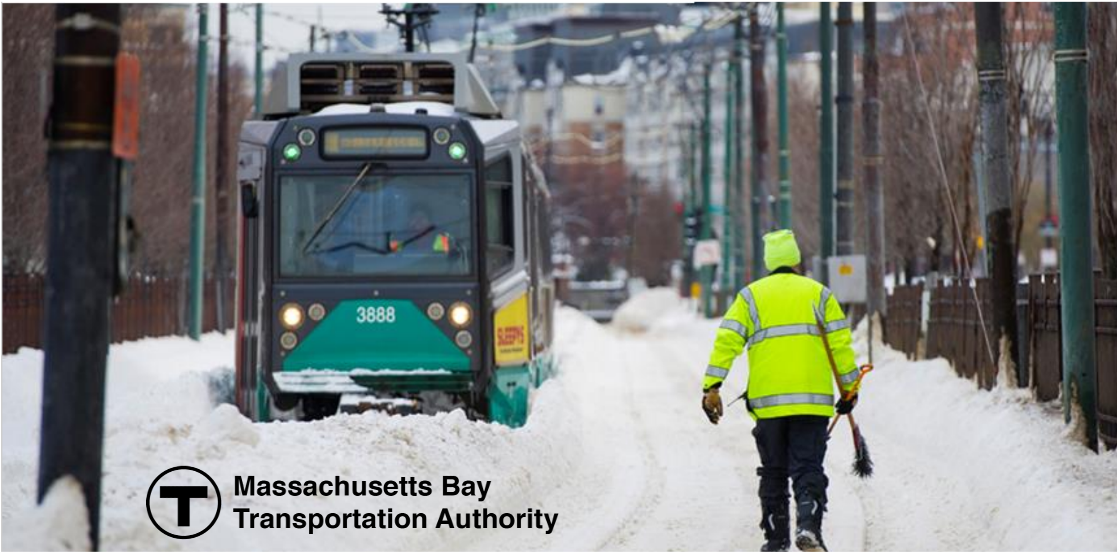MBTA Winter Storm Resource Deployment
Researchers: Danielle Song, Terry Liu, Tianyu Xu, and Bonnie Wang (with John Maleyeff)
The MBTA Winter Storm Planning research project aims to develop a prototype decision support system for MBTA personnel to create a more nuanced approach to allocating resources during severe weather events. The project started as one of 70 partnerships that City Innovate has organized through its STIR Labs initiative. STIR Labs is a national applied research program funded by the National Science Foundation that connects governments and academic teams to co-develop and apply research that offer solutions to the critical issues that communities face.
The researchers evaluated weather-related data to determine how this combination of factors can be used to predict impacts that require MBTA resources. The weather data included those currently used and others that are available or can be collected (e.g., snow/ice mix, wind speeds, humidity, and temperature, among others). The resources include those that are needed to address a number of weather-related issues, such as snow and ice removal, third rail clearance, switch defreezing, maintenance crews, and bus routing adjustments. Predictive modeling methods to create the models that form the basis of the graphical visualizations. An Excel prototype decision support system was piloted during the winter of 2021-2022.
Currently, the researchers are using Tableau as a visualization tool to transcribe national weather data (using application programming interface functionality) into a visualization dashboard. The dashboard contains radar charts with summary severities and hourly detailed severity graphs, that are published in an interactive platform. A Python-Tableau interface (TabPy) cleans API data and calculates severities based on mathematical models that were previously developed, Tableau Public makes it possible for MBTA decision-makers to monitor road conditions and make timely decisions regarding when to mobilize resources.
